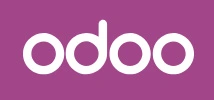Let's Talk
Traditionally accounting has been treated as one of the dull and unexciting aspect of a business. However, as the business evolves the accounting department will become arguably one of the most important components in the success of that business. Accountants are perfectly positioned to be some of the most valuable informational resources in a company. They know the ins and outs of how the organization operates and are intimately acquainted with the organization’s current and projected financial position. It is critically important for the financial health of an organization to provide the accounting team with the tools they need in order to effectively monitor these factors.
There are many accounting software offers on the market capable of providing the features and reporting functions accountants need, but where should the search for the best choice begin? Most growing businesses use a commercial management solution for their business operations. The ideal solution for these businesses would be to choose an accounting software that can be integrated with their current commercial solution. This will save a great deal of time and resources for the organization.
Accounting software is available either installed locally or through a cloud service provider. While both types of software have their own unique advantages, online offers are becoming increasingly popular choices amongst small and medium size businesses (SMBs) given the simplicity and low cost of implementation.

Odoo is an open-source software solution founded in 2004 by a student, Fabien Pinckaers. Previously called OpenERP, the brand changed its focus from an ERP solution to a suite of business applications. More than 37,000 add-ons are available thanks to the multiple developments made by Odoo and its community. Some of these apps are officially validated by Odoo, whereas others developed by the community are dedicated to specific versions for specific needs.
“ AMAZING EMPLOYEES DESERVE AMAZING SOFTWARE ”
Odoo is available in three editions: Community, Enterprise, and Online. The Community edition can be downloaded free of charge via the Odoo website. The Enterprise edition offers more features but comes with a yearly cost. The Online offer is the equivalent of the Enterprise version but is hosted in the cloud and monthly billed. For this comparison, we chose to compare the Online edition.

"BOOKKEEPING ESSENTIALS FOR BUSINESS OWNERS.”
Created in 1981, Sage was initially designed as a stand-alone accounting software. Since its inception, Sage has been signficantly expanded to include a greater scope of both accounting and general business management features. Today, Sage offers a range of business management software products for business of all sizes. For this comparison, we have chosen Sage One Online Accounting, which we believe represents a good online accounting option for SMBs.
Sage One has two editions: Sage One Accountant Edition, with features intended to be used by freelance accountants and bookkeepers, and Sage Online Edition, designed for SMBs.
Sage One Online Accounting is restricted to finance and can be upgraded through a variety of adds-ons. For this comparison we chose to compare the features of the Sage One Online Accounting version.
Odoo is an open source software that is available in three versions, two of which are local while the other is hosted in the cloud. More than 7,300 apps are available thanks to the multiple developments made by Odoo S.A. and its community.
The cloud-based Online Edition of Odoo ERP offers a customized solution specifically designed to solve SME needs. In this highly modular solution, each business function is carried out by a dedicated app. This allows growing businesses to start with a few apps and to adopt more as their needs change and evolve.
For this comparison we’ve selected the cloud-hosted version, Odoo Online. The unique part of this offer is that it’s completely customizable. There are more than 30 certified apps that cover the vast majority of business cases, all of which connect to the same database on Odoo’s servers.
Created in 1981, Sage was initially designed as a stand-alone accounting software. Since its inception, Sage has been signficantly expanded to include a greater scope of both accounting and general business management features. Today, Sage offers a range of business management software products for business of all sizes. For this comparison, we have chosen Sage One Online Accounting, which we believe represents a good online accounting option for SMBs.
Sage One has two editions: Sage One Accountant Edition, with features intended to be used by freelance accountants and bookkeepers, and Sage Online Edition, designed for SMBs.
Sage One Online Accounting is restricted to finance and can be upgraded through a variety of adds-ons. For this comparison we chose to compare the features of the Sage One Online Accounting version.

| General Scope | Sage | Odoo Online |
|---|---|---|
| Multi Currency | ||
| Consolidation | ||
| Multi User | ||
| Multiple Journals | ||
| Number of Languages | 10 | 85 |
| Supported Countries | 15 | 80+ |
| Access Rights | ||
| Access Rights per Screen | ||
| Access Rights per Field | ||
| Customizable Validation Steps | ||
| Third-Party Integration | ||
| Availability of an API | ||
| Spreadsheet Integration | ||
| Import : Excel or CSV | ||
| Export : Excel or CSV | ||
| Customer Portal | ||
| Customer Invoice | Sage | Odoo Online |
|---|---|---|
| Pro Forma Invoices | ||
| Multiple Taxes Per Line | ||
| Advanced Taxes (fixed, tax of taxes, etc.) | ||
| Discounts | ||
| Pricelists | ||
| Multi-Step Payments Terms | ||
| Cash Discounts | ||
| Outstanding Payments Reconciliation | ||
| Emails Discussion as Attachment | ||
| Configurable Email Templates | ||
| Send Invoices | ||
| Generate a PDF Invoice | ||
| Batch Send Invoices by Email | ||
| Post Invoices by Standard Mail | ||
| Customer Statements | ||
| Aged Receivable Balance | ||
| Customer Statements | ||
| Automated Follow-up Letters | ||
| Automated Follow-up Actions | ||
| Unpaid Fees and Penalties | ||
| Third-Party Debits Recovery | ||
| Online Payments | ||
| Credit Cards | ||
| PayPal | ||
| SEPA Direct Debit | ||
| Recurring Revenues | ||
| Automated Recurring Invoices | ||
| Subscription Upsell / Renewal | ||
| KPIs: Churn, MRR, Upsells, etc. | ||
| Alerts for Contract Renewal | ||
| Miscellaneous | ||
| Automated COGS Entries | ||
| Automated Deferred Revenue | ||
| Vendor Bills | Sage | Odoo Online |
|---|---|---|
| Billing Control (Purchase Orders / Receptions) | ||
| Multiple Taxes per Line | ||
| Purchase Agreements | ||
| Multi-Step Payment Terms | ||
| Fleet Bills & Disallow Expenses | ||
| Peppol / UBL Support | ||
| Artificial Intelligence | ||
| Bills OCR Recognition | ||
| Learning Intelligence | ||
| Payment Data from OCR | ||
| Realtime OCR (10 minutes) | ||
| Vendor Payments | ||
| Aged Payable Report | ||
| Print Checks | ||
| Automate Wire Transfer (SEPA) | ||
| ACH Transfers | ||
| Expenses | ||
| Employee Expenses Report | ||
| Expenses Validation Flow | ||
| Mobile App for Expenses | ||
| Miscellaneous | ||
| Assets Management | ||
| Bank & Cash | ||
| Bank Interfaces | ||
| Import Statements : QIF | ||
| Import Statements : OFX | ||
| Import Statements : CSV | ||
| Import Statements : Coda | ||
| Import Statements : Camt.053 | ||
| Deposit Tickets | ||
| Efficiency | ||
| Reconcile while Matching | ||
| Misc. Operations while Matching | ||
| Automated Rules | ||
| Miscellaneous | ||
| Bank Reconciliation Reports | ||
| Automated Currencies Rate Update | ||
| Analytic Accounting / Grouping | Sage | Odoo Online |
|---|---|---|
| Analytic / Cost Accounting | ||
| Multi-Level Analytic Accounting | ||
| Multiple Plans | ||
| Budgets | ||
| General Budgets | ||
| Analytic Budgets | ||
| Payroll | ||
| Payroll | ||
| Valuation | ||
| Standard Price | ||
| Average Price | ||
| FIFO | ||
| Perpetual Inventory Valuation | ||
| Legal Statements | Sage | Odoo Online |
|---|---|---|
| Profit & Loss | ||
| Balance Sheet | ||
| Cashflow Statement | ||
| General Ledger | ||
| Tax Reports | ||
| Tax Audit Report | ||
| Reports | ||
| Pivot Table on Multiple Dimensions | ||
| Customizable Reports | ||
| Customizable Dashboards | ||
| Annotate Reports | ||
| Customizable KPI’s | ||
| Predefined Executive Summary | ||
| Perpetual Fiscal Year Closing | ||
 India Office
India Office
601,Webel Tower I ,BN-4,
Sector V, Salt Lake,
Kolkata-91,WB,India
 Bangladesh Office
Bangladesh Office
GA-99/5, Rahima Tower (6th Floor) ,Badda Link Road, Middle Badda,
Dhaka-1212.
 UAE - Dubai
UAE - Dubai
Plot No: 78, Makani no: 30375 95622,
Building: Assalam, 3rd Floor,
PO Box: 381257, AI Rega
(In front of AI Ghurair Shopping Mall),
Dubai, UAE
 UK Office
UK Office
Suit 63 24-28 St.Leonards Road, SL4 3BB - Windsor
Berkshire (GB)
United Kingdom